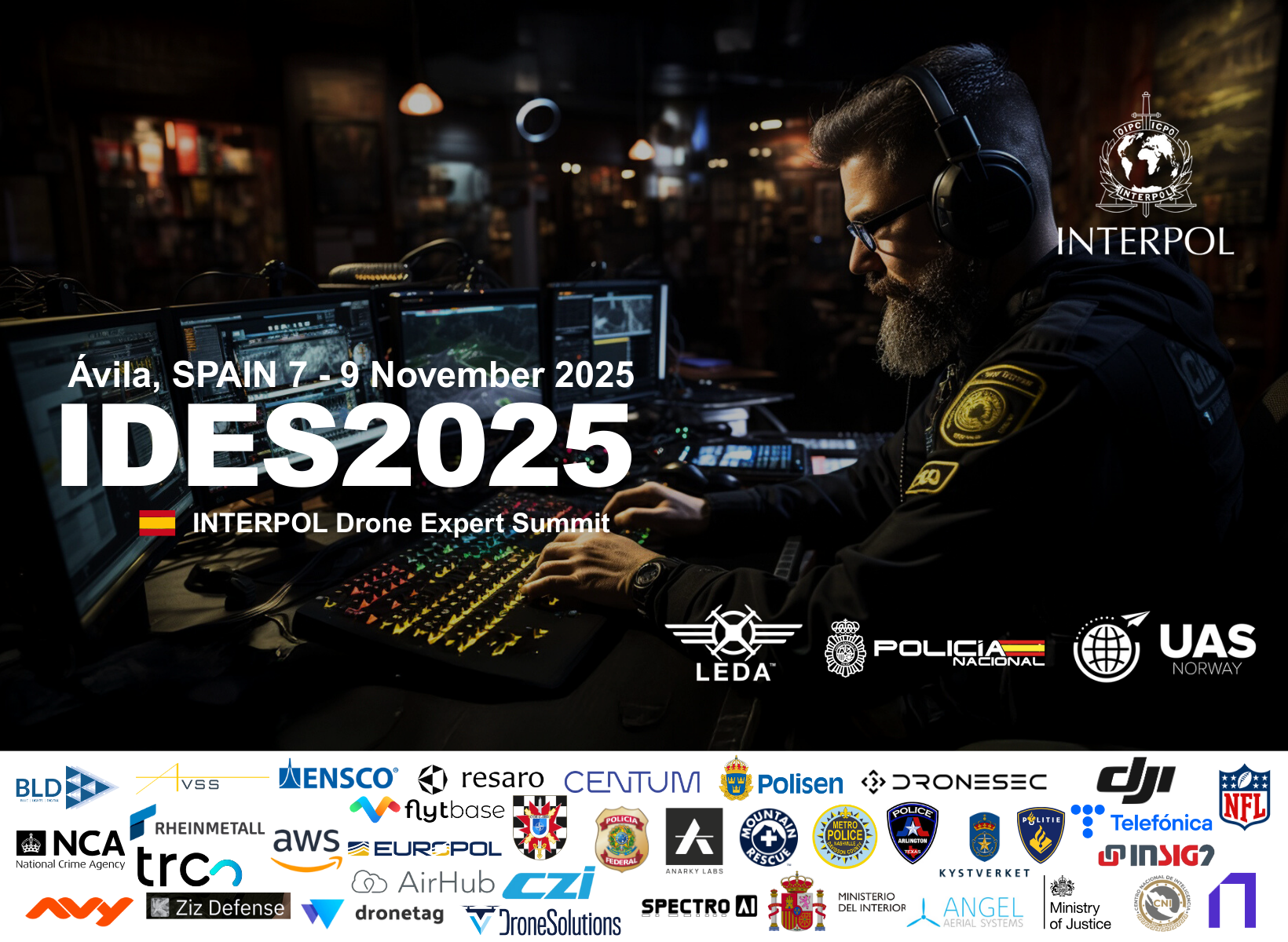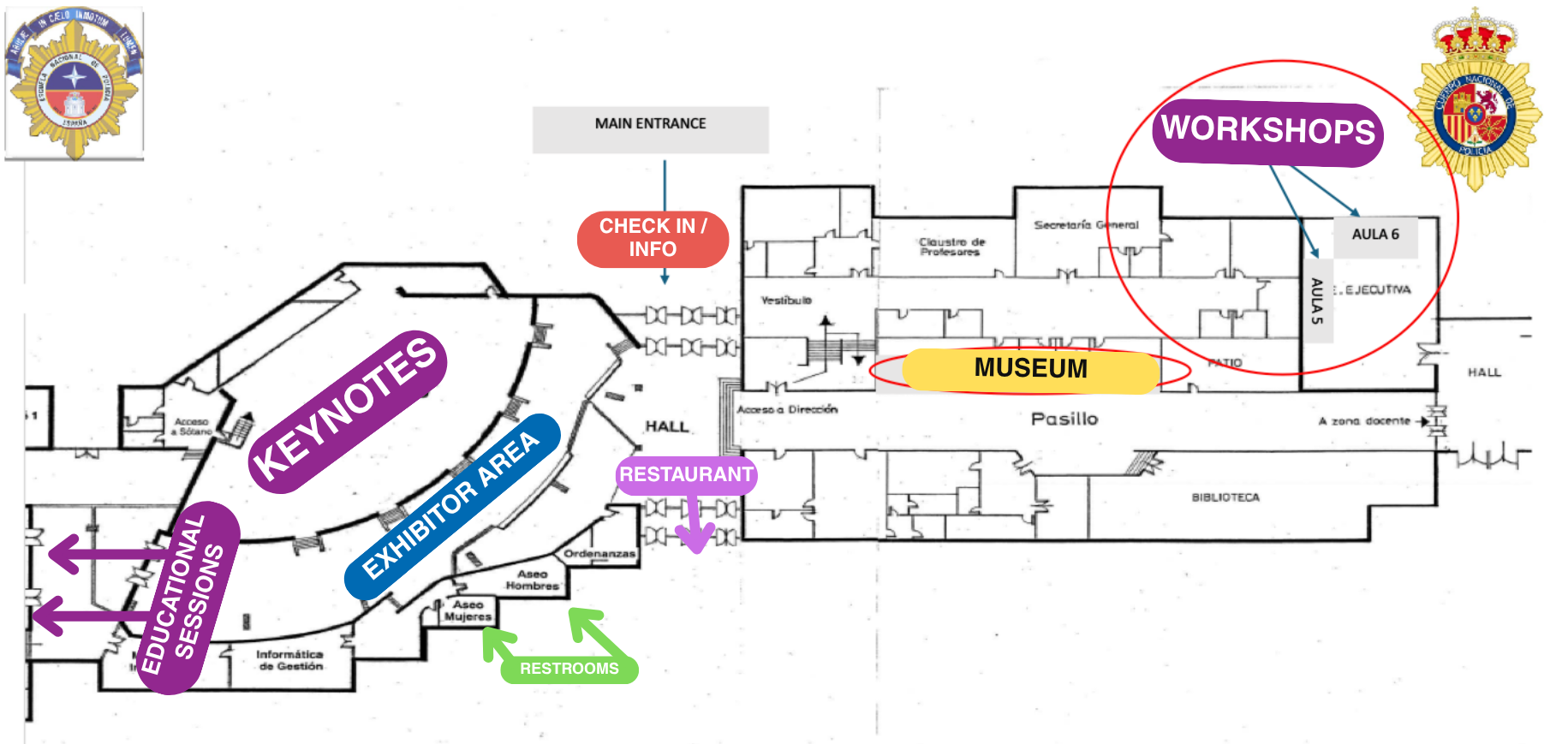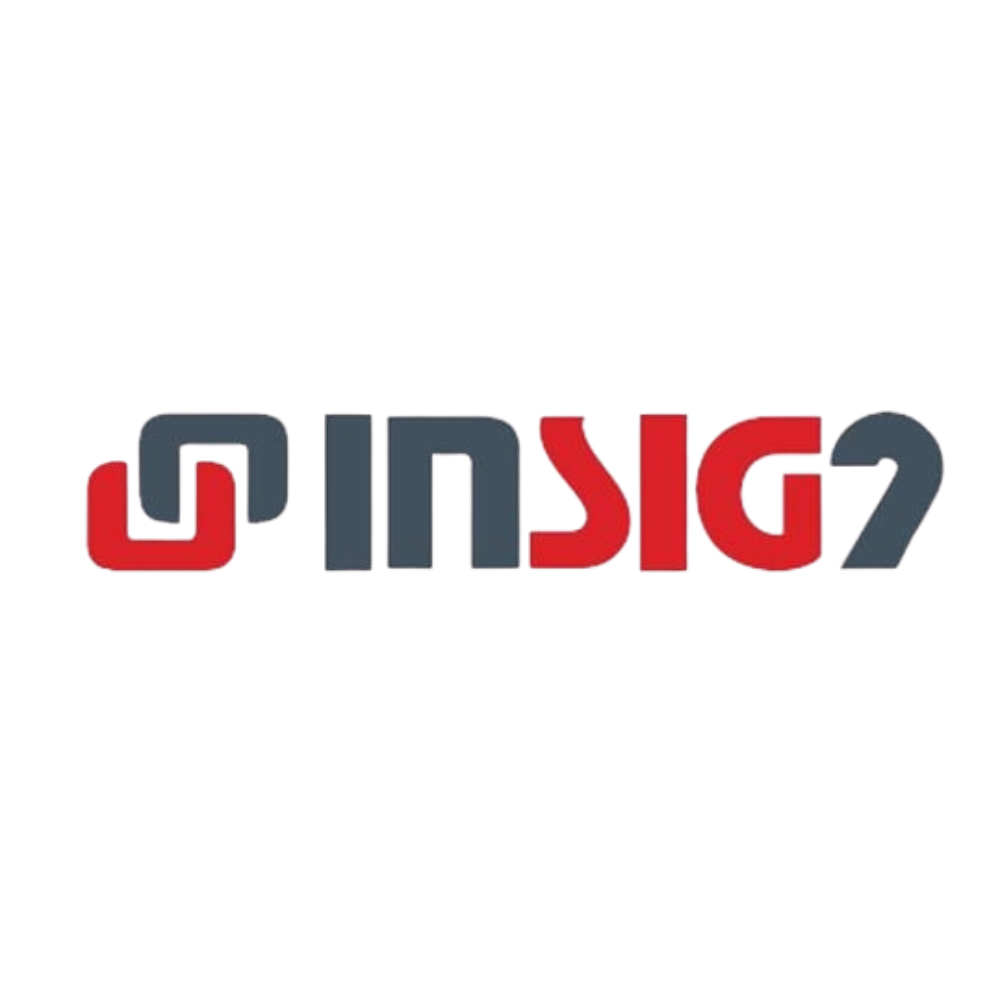
VENUE
The event will be held at the National Police College
Address: Av. Juan Carlos I, 46, 05004 Ávila, Spain
GETTING TO ÁVILA
Ávila is located approximately one hour from Madrid.
The most convenient way to reach the city is by rental car directly from Madrid-Barajas Airport. Major rental companies such as Avis, Hertz, and Europcar operate at all terminals.
Alternatively, participants may travel by train (Renfe) or bus from central Madrid.
CHECK-IN AND ID REQUIREMENTS
Upon arrival at the venue, please proceed to the registration desk to collect your personal ID badge.
Badges are collected once and remain valid throughout the event, but all participants must present valid photo identification (passport or driver’s license) every day when entering the venue.
The name on your ID must match your registration details.
Your badge must be worn visibly at all times inside the venue.
MEALS AND COFFEE BREAKS
All participants are invited to enjoy meals and refreshments provided throughout the summit.
Coffee breaks will be self-service, offering hot drinks, juices, yogurts, sandwiches, small baguettes (bocatines), and fruit.
Lunch will consist of a three-course buffet-style meal with two choices for each course.
⚠️Please note: we are unfortunately unable to accommodate individual dietary restrictions or allergies. Participants are encouraged to make their own arrangements if they require special meals.
Menu:
-
Friday break: hot drinks, yogurts
-
Saturday and Sunday breaks: sandwiches, bocatines, fruit, and drinks
-
Lunch:
-
starters: mixed salad / creole rice
-
main course: grilled hake / chicken breast with garnish
-
dessert: fruit or yogurt
-
🏃🏽♂️ Social Run
Join the fun Morning Run:
Friday: 07:45 – 08:30
Saturday: 05:45 – 06:45
Sunday: 05:45 – 06:45
Meet at Hotell II Castillas Ávila, Av. Juan Carlos I, 111, 05004 Ávila, Spania
Join in order to collect the Official INTERPOL Runners T-shirt (Really limited quantities available) – First come – first serve!
No registration needed, just meet up.
🏛️Visit The National Police Museum
While attending IDES2025, all participants are invited to explore the National Police Museum, located inside the training academy where the summit takes place.
The museum is open throughout the event for attendees who wish to visit on their own and take a self-guided tour.
VENUE MAP

INTERPOL Drone Expert Summit 2025
Leveraging Cutting-Edge Technology for Law Enforcement in the Drone Era
Dates: 7-9 of November 2025
Location: Av. Juan Carlos 1, 46, 05004 Ávila, 1 hour outside Madrid, Spain
Why Attend?
The rapid evolution of drones is reshaping the operational landscape for law enforcement and public safety worldwide. They are becoming indispensable tools in areas such as search and rescue, border control, crime scene investigation, and large-scale event management. At the same time, they are increasingly misused for smuggling, surveillance, and even coordinated hostile attacks. This dual reality makes drones both a powerful asset and a pressing challenge for global policing.
At the INTERPOL Drone Expert Summit 2025 (IDES2025), you will gain a comprehensive understanding of how drones are transforming law enforcement. The summit will explore drones as threat, tool, and evidence, offering participants both strategic insight and operational knowledge.
What to Expect at IDES2025
- Keynotes from Global Experts
Hear from world leaders in drone deployment, counter-drone strategies, forensic analysis, and artificial intelligence. Learn how agencies across the globe are responding to the opportunities and risks of the drone era.
- Live Demonstrations
Witness drones and counter-UAS systems in action. From Drone as First Responder programs to advanced interdiction technologies, see first-hand how these solutions perform in real-world scenarios.
- Operational Focus
Go beyond theory with concrete examples of how drones are being integrated into modern law enforcement and border operations. Explore how data, AI, and autonomous systems are redefining situational awareness and investigative capacity.
- Training and Knowledge-Sharing
Extend your experience with optional forensic training designed to provide hands-on skills for extracting evidence and intelligence from captured drones and associated systems.
- Global Collaboration
Meet and exchange knowledge with peers, decision-makers, and innovators from law enforcement, government, academia, and industry. Build lasting partnerships that will shape future policies, standards, and practices.
The Goal
IDES2025 is more than a conference. It is a platform for strengthening international cooperation, developing best practices, and accelerating the safe and effective use of drones and counter-drone technologies. By bringing together global expertise, we aim to ensure that law enforcement and public safety agencies are prepared for both the current and future challenges of the drone era.
EXCLUSIVE WORKSHOP AND FORENSIC TRAINING
Don’t miss out on exclusive workshops and forensic training during the INTERPOL Drone Expert Summit 2025.

[Workshop] Scaling Public Safety Drone Programs with Docks + AI
Saturday, November 8th
Time: 16:00 – 18:00
Location: Workshop classroom
About the workshop, location and time - click to view more details
FlytBase Workshop [Date: Nov 8, Saturday, 16:00 -18:00]
Topic: Scaling Public Safety Drone Programs with Docks + AI
Description:
Most enterprises and law enforcement agencies face significant challenges when scaling their drone and DFR programs beyond 1–2 docks. This workshop delivers the playbook for large-scale, city-wide deployments.
Learn from real operations, including UK NPCC’s national program across 43 police forces with sub-2-minute response times, Statnett’s utility monitoring, and Ministries of Interior handling crisis management, event security, and traffic monitoring at national scale.
Walk away with proven frameworks for site selection, command center dispatch integration, and operational management — years of hard-won insights from successful multi-site deployments, condensed into one focused session.

Streamline Drone Ops: Hands-On AirHub for Secure Streams and Smart Fleets (Workshop with Airhub)
Saturday 14:00 – 15:00 and Sunday 08:00 – 09:00
Location: Workshop classroom
About the workshop, location and time - click to view more details
Discover how AirHub simplifies drone operations with secure livestreaming from DJI Enterprise drones, bodycams, action cams and consumer models like DJI Avata 2, enabling real-time collaboration without compromising safety. This hands-on workshop dives into fleet and pilot management tools to organize teams, track assets, and ensure compliance through automated flight logging and digital checklists. Participants will explore integrated live streaming, airspace data for smarter flight planning, reducing risks and boosting efficiency in every mission. Join us to build practical skills and leave with a customized workflow ready to elevate your drone operations.

Forensic training with INsig2
Friday 16:30 – 17:15, Saturday 11:00 – 13:00 , Sunday 10:00 – 12:00
Location: Workshop classroom and outdoor
About the workshop, location and time - click to view more details
Day 1 – Educational session – Short intro to drone digital forensics
Location: Workshop classroom
Time: 16:30 – 17:15
A focused overview of drone digital forensics emphasizing best practices and safety protocols. Dive into methodologies for extracting critical data from drones, followed by insights into detailed analysis and forensic reporting tailored for experienced practitioners.
Day 2 – Workshop – Triage on scene
Location: Outdoor
Time: 11:00 – 13:00
This workshop focuses on hands-on triage techniques at drone-related crime scenes. Through a mock scenario and live demo, explore the roles of both technical and non-technical first responders. Learn how to create SOPs for various case types, prioritize health and safety, and discuss best practices. Dive into technical requirements, drone capabilities, attack vectors, and identify key components and data sources critical for effective on-scene triage.
Day 3 – Workshop – Forensic analysis & reporting
Location: Workshop classroom
Time: 10:00 – 12:00
This workshop is case-driven, for all practitioners on turning extracted drone data into actionable intelligence and admissible reports. We’ll map main components and data sources, demonstrate extraction possibilities with open‑source and commercial tools (including XRY, OFD and v2), and show which tool retrieves which types of artefacts. Topics include drone data analysis, encryption & decoding approaches, analytics workflows, and a direct comparison of commercial vs. free-tool capabilities for analysis. Finish with basic examples for clear, defensible forensic reporting.
Official Demo Schedule
Friday:
15:30–15:45 – AVY
16:30–16:45 – DJI
17:30–17:45 – Angel Aerial Systems
Saturday:
09:45–10:30 – Airhub
10:15–10:30 – Resaro
11:30–11:45 – Centum
12:00–12:15 – AVY
12:30–12:45 – DJI
14:30–14:45 – Angel Aerial Systems
Sunday:
09:30–09:45 – Airhub
10:00–10:15 – Resaro
10:30–10:45 – Centum
Meet the speakers
Hannu Lesonen
Founder, CXO at Anarky Labs
Olly Salzmann
co-CEO at Resaro
Joshua Daniel Ogden
CEO at AVSS
Saša Deković
Digital forensics senior consultant at INsig2
Mark Cameron
Independent CUAS adviser
José Rufas Simón
Head of the CoE's Network Attack Section at NATO C-IED CoE, Spain
Josh Rubenstein and Jonathan Hunter
Founder at Ziz Defense Company
Richard Utne
Head of Department for Maritime Security at Norwegian Coastal Administration
FELIX DAVID CARDEÑOSA VERGARA
Inspector at Spanish National Police
Patrique Zaman
Founder at Avy | Autonomous Police Drones
Matt Service
Group Chief Executive Officer at Blue Lights Digital
Paula Martín
Head of Product Area at TRC
Javier Gonzalez Rodriguez
Police Inspector at Spanish National Police
Will Hasting
CEO & Co-Founder at Angel Aerial Systems
Bill Edwards
Director of C-UAS Operations at ENSCO
John O`Neil
UAS Tactical Advisor at National Crime Agency
Christopher Church
Senior Forensics Specialist at INTERPOL
Lukas Brchl
CEO at Dronetag
Gonzalo Izquierdo Oliver
Lieutenant at GUARDIA CIVIL - Air Service UAS/C-UAS
Stephan Van Vuren
Co-Founder & Director at Airhub
Fadi Kanaan
Co-founder / COO at N-AI
Jose Ramon Bua
Business Director at ITG DRONE SOLUTIONS, SL
Kyle Nordfors
Captain / UAS Chair at Mountain Rescue Association
Johan Dahlén
Police Inspector at Swedish Police Authority
Steven Jones
Police Officer at Metropolitan Nashville Police Department
Bruno Costa Pitanga Maia
Forensic Experts at Federal Police of Brazil
Angel Manuel Siles García
Chief Inspector at Spanish National Police
James Bingham
Intelligence Analyst at DroneSec
Andrew Yu
Enterprise Business Development Manager at DJI
Robert Francis Dombrowski Mena
Spain Security Representative at NFL
Daniel Franca de Oliveira Melo
Perito Criminal Federal (Forensic Expert) at Federal Police of Brazil
Rob Robertson
Police Sergeant- Aviation/Technical at Arlington Police Department (Texas)
José CEBRIÁN DE BARRIO
Head of Critical communications SIRDEE, R&D Department and CUAS Department at Spanish Ministry of Interior
Rickard Henningsson
Accountable manager UAS at Swedish Police Authority
Nick Roberts
Head of Counter Drones at Ministry Of Justice (UK)
Igor Špoljarić
Chief Technology Officer at INsig2
Hamed Mehdipoor
Managing Director at Spectro-AI
Magnus Sjöberg
Superintendent at Europol Innovation Lab
Nitin Gupta
Founder and CEO at FlytBase
Killian Hemmy
Principal, Global National Security And Defense at Amazon Web Services (AWS)
Antonio Sahagún
Business Development ISR at CENTUM
Jon van Til
CUAS team of the NL Police at National Police of the Netherlands
MIGUEL ALVARO FERNANDEZ
Security Engineering at TELEFONICA
Vincent Olsthoorn
CUAS team of the NL Police at National Police of the Netherlands
Event Schedule
Day 1 - Keynotes (Auditorium)
07:00 - 08:00
Social run
No registration needed. Meet at Hotell II Castillas Ávila, Av. Juan Carlos I, 111, 05004 Ávila, Spania
12:00 - 14:00
DOORS & REGISTRATION OPEN
Arrive early to avoid line
14:00 - 14:30
Opening of IDES2025
14:30 - 15:20
IDICE2025 - Drones as a tool, threat and evidence
By Christopher Church - Senior Forensics Specialist at INTERPOL
15:20 - 16:00
The combined threat of UAS and explosives: adversarial perspective, trends and outlook
By José Rufas Simón - Head of the CoE's Network Attack Section at NATO C-IED CoE, Spain
16:00 - 17:00
BREAK
17:00 - 17:30
Evolving Technology in the Maritime Domain: Perceptions and Security Implications
By Richard Utne - Head of Department for Maritime Security at Norwegian Coastal Administration
Explores how emerging technologies reshape maritime security, why risk perceptions lag, and how understanding hybrid air–sea–digital threats builds resilient maritime infrastructure
17:30 - 18:00
Technological Development and Deployment of Antidrone Systems in the Spanish National Police
By Javier Gonzalez Rodriguez - Police Inspector at Spanish National Police
Overview of the technological advances and deployment of anti-drone systems within the Spanish National Police to enhace Security and operational effectiveness.
Day 1 - Educational session (Classroom)
15:30 - 16:15
Long-Endurance Drones for Continuous Situational Awareness
By Will Hasting - CEO & Co-Founder at Angel Aerial Systems
16:15 - 16:30
BREAK
16:30 - 17:15
Compliant Parachute Recovery Systems and Flight Termination Systems for DFR applications.
By Joshua Daniel Ogden - CEO at AVSS
Discussion regarding compliant parachute recovery systems and flight termination systems for public safety applications. Focus on regulatory and technology considerations.
17:15 - 18:00
AI-Powered Acoustic Systems for Drone Detection
By Josh Rubenstein and Jonathan Hunter - Founder at Ziz Defense Company
Presents SONA and THOR — a framework for virtual-first prototyping, ML retraining, and deployment in acoustic drone detection. Enables continuous, adaptive, low-latency field improvement.
Day 2 - Keynotes (Auditorium)
05:45 - 06:45
Social run
No registration needed. Meet at Hotell II Castillas Ávila, Av. Juan Carlos I, 111, 05004 Ávila, Spania
07:30 - 08:30
DOORS & REGISTRATION OPEN
Arrive early to avoid line
08:30 - 09:00
Securing the NATO Summit against unwanted drone activities
By Vincent Olsthoorn - CUAS team of the NL Police at National Police of the Netherlands and Jon van Til - CUAS team of the NL Police at National Police of the Netherlands
The NATO Summit was a major event in the Netherlands in 2025. The National Police were responsible for countering UAS threats. In this presentation, we will provide an overview of how we organized the operation, share the results, and offer some insights into our outlook for the future.
09:00 - 09:30
DFR during police operations
By Johan Dahlén - Police Inspector at Swedish Police Authority
From Drone as a Responder to Drone as a First Responder: How our police force deployed drones for faster, smarter first response.
09:30 - 10:00
Learning From the Worst to Become Our Best- Aviation Safety Culture
By Rob Robertson - Police Sergeant- Aviation/Technical at Arlington Police Department (Texas)
Explores lessons from UAS incidents and how public safety teams apply aviation safety principles. Covers debriefs, FAA/NASA reporting, and building a shared safety culture.
10:00 - 10:30
4G/5G DRONES. Benefits, Risks and Threats.
By MIGUEL ALVARO FERNANDEZ - Security Engineering at TELEFONICA
Examines how 4G and 5G integration boosts drone range, data, and autonomy while increasing risks like surveillance, smuggling, and attacks—highlighting the need for strong counter-drone measures.
10:30 - 11:30
BREAK
11:30 - 12:00
The Tactical Edge: Smarter Drones. Smarter Awareness
By Stephan Van Vuren - Co-Founder & Director at Airhub
Shows how police and public safety agencies in Europe and the Middle East use drones and advanced software to transform real-time decisions, enhance situational awareness, and modernize policing. (296 tegn)
12:00 - 12:30
AI for Law Enforcement: Smarter Data. Faster Action. Safer Outcomes.
By Andrew Yu - Enterprise Business Development Manager at DJI
Empowering officers with real-time intelligence from LiDAR and edge-based AI systems.
12:30 - 13:00
The Next Decade of Public Safety: How Physical AI is Reshaping DFR & Security
By Nitin Gupta - Founder and CEO at FlytBase
Explores how Physical AI is transforming public safety as drones scale globally. Highlights AI breakthroughs, best practices, and strategic steps for leaders moving from pilots to national autonomous programs while ensuring safety and compliance
13:00 - 14:00
LUNCH
14:00 - 15:00
PANEL DISCUSSION: How to fix the CUAS engine
By Mark Cameron - Independent CUAS adviser at INTERPOL and Christopher Church - Senior Forensics Specialist at Amazon Web Services (AWS) and Killian Hemmy - Principal, Global National Security And Defense at Blue Lights Digital and Matt Service - Group Chief Executive Officer at Swedish Police Authority and Rickard Henningsson - Accountable manager UAS at GUARDIA CIVIL - Air Service UAS/C-UAS and Gonzalo Izquierdo Oliver - Lieutenant at
15:00 - 15:30
Evolution of Security Measures for the Protection of People and Event before Modern UAS Threats
By Robert Francis Dombrowski Mena - Spain Security Representative at NFL
This session will briefly describe the evolution in the perceptions of security professionals (government and private) as UAS technology has evolved. From early systems posing relatively low danger, to modern day systems creating serious concerns of major event disruptions and/or severe harm to protected individuals.
15:30 - 16:00
More Than Sensors: The Human Factor in Countering the Drone Threat
By Mark Cameron - Independent CUAS adviser at
Explores the vital role of the CUAS advisor bridging tech, ops, and decisions. Shows how human insight, training, and collaboration turn data into action and enhance CUAS readiness.
16:00 - 16:30
Forensic use of drones in Brazil - Case studies
By Bruno Costa Pitanga Maia - Forensic Experts at Federal Police of Brazil and Daniel Franca de Oliveira Melo - Perito Criminal Federal (Forensic Expert) at Federal Police of Brazil
Shows how Brazil’s Federal Police use UAVs to transform forensics — from disaster mapping to crime scene reconstruction — boosting accuracy, safety, and investigative efficiency.
Day 2 - Educational session (Classroom)
09:00 - 09:45
Killer Drones: The Evolution of sUAS and Why We Should Care!
By Bill Edwards - Director of C-UAS Operations at ENSCO
Offers a strategic look at drone evolution—from Iraq combat to commercial use—and its impact on security. Explores ISR, AI, autonomy, and the need for integrated air-domain defense.
09:45 - 10:30
Leaderboards for Enhanced Security: Scenario-Based Quality and Performance Testing of Drone Providers
By Olly Salzmann - co-CEO at Resaro
Presents a new scenario-based framework for evaluating drone providers through mission-oriented leaderboards. Explores design, challenges, and demos showing how this approach boosts innovation, improves procurement, and enhances safety in global defense and security.
10:30 - 11:30
BREAK
11:30 - 12:15
LEDA/NTOA Tactical Operations Standard
By Steven Jones - Police Officer at Metropolitan Nashville Police Department
Explores how drones support tactical incidents through the Tactical Operations Standard by LEDA and NTOA. Covers key recommendations, real-world lessons, and practical tips for teams.
12:15 - 13:00
Deploying Remote ID Detection in the Real World: Lessons from Critical Infrastructure and Law Enforcement
By Lukas Brchl - CEO at Dronetag
Shares real-world use of stationary and portable Remote ID receivers for monitoring drones, managing airspace incidents, and boosting situational awareness. Covers challenges, integration, and lessons for security and UTM professionals.
13:00 - 14:00
LUNCH
14:00 - 14:45
How TRC innovates technology close to the FFAA
By Paula Martín - Head of Product Area at TRC
14:45 - 15:30
Airborne Mobile Phone Location System for Security Missions
By Antonio Sahagún - Business Development ISR at CENTUM
This session will introduce CENTUM and its airborne phone location system, designed to support security and law enforcement operations through the detection and location of mobile phones. The presentation will cover system capabilities, integrations on drone platforms, and operational use cases.
15:30 - 16:15
Why Cloud Matters for Public Safety UAS
By Killian Hemmy - Principal, Global National Security And Defense at Amazon Web Services (AWS)
Day 3 - Keynotes (Auditorium)
05:45 - 06:45
Social run
No registration needed. Meet at Hotell II Castillas Ávila, Av. Juan Carlos I, 111, 05004 Ávila, Spania
07:30 - 09:00
DOORS & REGISTRATION OPEN
Arrive early to avoid line
08:30 - 09:00
From Warzones to Warehouses: Tracking the Invisible Drone Threat
By James Bingham - Intelligence Analyst at DroneSec
Using DroneSec data, this session shows how threat actors adapt drone TTPs from conflicts (Ukraine, Myanmar) to bypass countermeasures—case studies show rapidly evolving risks.
09:00 - 09:30
From Crime as a Service To Crime at a Distance
By Magnus Sjöberg - Superintendent at Europol Innovation Lab
Unmanned systems impact on law enforcement’s future operational environment. Highlights from Europol’s upcoming report ”The Unmanned Future(s)”
09:30 - 10:00
From tactics to courtroom. What Red Team tests reveal about evidence integrity
By Matt Service - Group Chief Executive Officer at Blue Lights Digital
In 2024 and 2025, Interpol ran landmark UAS and CUAS exercises in Seville and San Diego to test the limits of police, defence, and industry teams. As Red Team Commander, Matt led adversarial UAS campaigns replicating real-world threats — from organised criminal ISR to autonomous payload delivery and countermeasures — exposing both strengths and vulnerabilities in defending critical infrastructure and evidence integrity. Each scenario yielded vital data on how forensic processes withstand operational stress. This session traces that journey from concept to courtroom, examining how tactical experimentation shapes evidential policy, CUAS performance under pressure, and evolving standards to protect the integrity of drone-derived evidence in justice systems — ultimately asking: when a CUAS system is the witness, how do we trust its story?
10:00 - 10:30
The Nature and Scale of Drones to the UK Prison Service
By Nick Roberts - Head of Counter Drones at Ministry Of Justice (UK)
Outlines the scale and nature of drone threats to UK prisons, emerging technologies, and upcoming trends, with case studies of successful counter-drone operations with partners.
10:30 - 11:00
Securing the Skies: How Spain Is Building the Next Generation of Drone Defence
By José CEBRIÁN DE BARRIO - Head of Critical communications SIRDEE, R&D Department and CUAS Department at Spanish Ministry of Interior
11:00 - 11:30
BREAK
11:30 - 12:00
Use of Drones in Support of Undercover Missions.
By FELIX DAVID CARDEÑOSA VERGARA - Inspector at Spanish National Police
This proposal outlines an interactive methodology to generate, evaluate and adapt practical drone concepts that enhance situational awareness, operator safety and mission effectiveness during undercover operations.
12:00 - 12:30
Tactical operations: Challenges, risks and considerations
By John O`Neil - UAS Tactical Advisor at National Crime Agency
This session explores the topic of a team’s ‘situational awareness’, outside the ‘area of interest’ during tactical operations.
12:30 - 13:00
CLOSING CEREMONY
Day 3 - Educational session (Classroom)
08:15 - 09:00
AVY
By Patrique Zaman - Founder at Avy | Autonomous Police Drones
AVY
09:00 - 09:45
AirHUD - Utilizing possibilities of modern VR headsets in drone operations
By Hannu Lesonen - Founder, CXO at Anarky Labs
Presents AirHUD, a VR-based heads-up display for drone pilots offering 3D visualizations, FPV extensions, CUAS overlays, and live 3D mapping. Also introduces AirSkill, a compact VR simulator for emergency and law enforcement training.
09:45 - 10:30
AI-Powered Drones for Crowd Management
By Fadi Kanaan - Co-founder / COO at N-AI
AI-Powered Drones for Crowd Management showcases N-AI’s integration of aerial and ground video analytics, geospatial mapping, and predictive modeling to enhance situational awareness and enable proactive, data-driven crowd safety operations.
10:30 - 11:00
BREAK
11:00 - 11:45
Exploring Brain-Box and SAI-HUB: The Local AI Software Ecosystem for Enterprise DJI Drones and DJI Docks.
By Hamed Mehdipoor - Managing Director at Spectro-AI
Introduces Spectro-AI’s edge-AI ecosystem built on the SAI-HUB platform, running locally on the Spectro-AI Brain-Box for DJI Enterprise and Dock systems, enabling secure, offline autonomous operations and intelligent data processing.
11:45 - 12:30
Flying Smarter: How DroneSuite Turns Missions into Decisions
By Jose Ramon Bua - Business Director at ITG DRONE SOLUTIONS, SL
Showcases a scalable drone platform for infrastructure protection, border surveillance, and emergency response, enabling real-time monitoring, rapid deployment, and secure, GIS-ready data delivery.
Les mer om Vær Varsom-plakaten
